The ICF PCC Exam
-
What are the major changes ICF has made to its Credentialing Exam and why?
-
What are the main challenges and opportunities for coaches seeking ICF credentials?
-
How does ICF ensure the validity and security of its Credentialing Exam?
Here are some ways the ICF ensures the validity and security of its Credentialing Exam:
- Partners with Pearson VUE: The ICF partners with Pearson VUE, a global network of testing centers, to deliver the exam at on-site testing centers or online through Pearson OnVUE. Pearson VUE offers live, remote proctoring for online exams to ensure the same high quality and security in the testing process.
- Rigorous Exam Development and Scoring: The exam was developed using globally accepted practices for test development and a comprehensive job analysis of the knowledge, skills, and abilities required of coaches. Experienced ICF coaches served as subject matter experts to develop, validate, and review each exam item. The passing score is determined using the Angoff methodology, a best practice for certification testing programs.
- Secure Delivery Format: The transition to a more secure delivery format ensures a fair and equal opportunity for each candidate to demonstrate their knowledge and skill in coaching. The secure delivery also protects the exam from potential misuse or malpractice, including the copying and distribution of exam questions.
- Scenario-Based Items: The exam uses approximately 78 scenario-based items to test the candidate’s knowledge of the ICF Core Competencies and how to apply them in realistic coaching scenarios.
- No Feedback on Individual Items: While candidates receive their overall exam score and result, feedback on individual exam items is not provided to maintain exam security.
- Retake Policies: Candidates who do not pass the exam on their first attempt may retake it. However, there are waiting periods and limits on the number of retakes within a specific timeframe to prevent the memorization of exam questions.
- Legal Restrictions: ICF complies with international trade sanctions laws and regulations imposed by the U.S. government. As a result, the ICF Credentialing Exam is not administered in countries subject to comprehensive U.S. sanctions.
- Ongoing Exam Updates: The ICF supports ongoing updates to the ICF Credentialing Exam to maintain its relevance and security. Candidates applying for higher-level credentials in the future may encounter different versions of the exam.
- Limited Test Availability: The ICF Credentialing Exam is not offered in every country. Individuals in countries subject to comprehensive U.S. sanctions, including Cuba, Iran, North Korea, Russia, Sudan, Syria, and the Crimea, Donetsk, and Luhansk regions of Ukraine, are prohibited from taking the exam.
- Exam Fees and Retake Fees: Candidates must pay a fee to take the ICF Credentialing Exam. If a candidate misses their scheduled exam appointment and fails to cancel or reschedule at least 48 hours in advance, they forfeit the exam fees. Additionally, there is a retake fee of $105 USD for candidates who need to retake the exam. Candidates are allowed a maximum of six attempts within a 12-month period.
- Stringent Passing Requirements: The exam has a predetermined passing score of 460 out of a possible range of 200 to 600. The exam is designed to be challenging and requires candidates to demonstrate a deep understanding of the ICF Core Competencies, the ICF Code of Ethics, and the ICF’s definition of coaching. While feedback is provided regarding the overall result, specific feedback on missed questions is not given.
- Requirement to Retake Exam for Higher-Level Credentials: While the ICF Credentialing Exam does not need to be retaken for credential renewals, it is currently required for each new application, even if the candidate has previously passed the exam for a lower-level credential. This means that a coach who has already earned their ACC credential will still need to take the exam again if they apply for the PCC or MCC credential.
- Enhanced Credibility and Recognition: Obtaining an ICF credential, such as the ACC, PCC, or MCC, provides coaches with increased credibility and recognition within the coaching profession. The ICF is a globally recognized organization, and its credentials are highly respected in the industry.
- Improved Exam Security and Value: The transition to a more secure exam delivery format, through Pearson VUE testing centers and online proctoring, aims to enhance the security and value of the ICF credentials. This ensures a fair and equal opportunity for all candidates and protects the exam’s integrity.
- Global Networking and Professional Development: ICF membership offers various benefits, including access to a global network of coaches, professional development resources, and continuing education opportunities.
- Free Exam Preparation Resources: ICF provides a free online tutorial for the ICF Credentialing Exam, allowing candidates to familiarize themselves with the exam platform, practice navigation, and review sample questions. Additionally, completing an ICF-accredited coaching education program can serve as valuable preparation, as it aligns with the ICF Core Competencies and Code of Ethics.
- Previously, the Coach Knowledge Assessment (CKA) was administered online with limited security measures.
- In August 2022, ICF transitioned to a new Credentialing Exam delivered through Pearson VUE testing centers and Pearson OnVUE, a live remote proctoring service.
- This change ensures a fair and equal opportunity for all candidates to demonstrate their coaching knowledge and skills.
- The secure exam delivery format prevents misuse or malpractice, including the copying and distribution of exam questions.
- By enhancing exam security, the ICF aims to increase the validity, integrity, and value of its credentials.
- The new ICF Credentialing Exam is a computer-based exam based on the ICF Core Competencies.
- It consists of 78 situational judgment items.
- Candidates are required to select the best and worst actions from four response options for each scenario.
- All questions are based on the ICF Core Competencies, Code of Ethics, and Definition of Coaching.
- The exam was developed by ICF with experienced ICF coaches serving as subject matter experts.
- The exam score range is 200 to 600, with a passing score of 460.
- Candidates receive their scores immediately after completing the exam and official notification from ICF one week later.
- Candidates who fail the exam can retake it, but must wait 14 days after their first attempt and 30 days for subsequent attempts.
- Candidates have a maximum of six attempts within a 12-month period.
- Each retake incurs a fee of $105 USD.
- Candidates submitting new or upgraded applications after August 1, 2022, are required to take the new exam.
- Those renewing existing credentials do not need to take the exam.
- If a candidate passed the previous CKA, they still need to take the new exam when applying for a higher-level credential.
- This ensures all candidates meet the same standards and requirements.
- ICF plans to provide ongoing updates to the exam.
- Candidates applying for higher-level credentials may need to complete different versions of the exam.
As an ICF Accredited Coaching Training Provider, Positivity Global Coaching boasts unparalleled expertise in delivering top-tier coaching training at the mastery level. Our in-depth knowledge of ICF Core & Team Competencies and the rigorous evaluation process for ICF credentials enables us to offer exceptional support to aspiring coaches.
The path to ICF Credentialing can be daunting due to scarce resources. Recognizing this challenge, we have developed a comprehensive Model Assessment specifically designed to thoroughly prepare you for the ICF Team Coaching Credentialing Exam.
Our practice exam closely replicates the structure and content of the actual ICF questions, focusing on real-world coaching scenarios. Please note, this is a simulation, and explanations for answers are not included. For further guidance, we invite you to book a mentoring session with our expert coaches.
ICF Credentialing Exam FAQs
Q: What is the ICF Credentialing Exam?
A: The ICF Credentialing Exam is a computer-based exam that evaluates a coach’s understanding and application of the ICF Core Competencies, the ICF Code of Ethics, and the ICF definition of coaching. It is required for those pursuing the Professional Certified Coach (PCC) and Master Certified Coach (MCC) credentials. ACC candidates can choose to take this exam through March 14, 2025.
Q: What is the format of the ICF Credentialing Exam?
A: The exam consists of 78 situational judgment items, each presenting a realistic coaching scenario with four response options. You need to choose the best and worst actions from the given choices.
Q: How is the ICF Credentialing Exam delivered?
A: The exam is administered through Pearson VUE, offering two options: taking the exam at a physical Pearson VUE testing center or online from your home or office using Pearson OnVUE, their live remote proctoring service.
Q: How long do I have to take the exam once I receive the invitation?
A: You have 60 days from the invitation date to schedule and complete the exam. The exam itself has a 3-hour time limit.
Q: What topics are covered in the exam questions?
A: The questions are based on the ICF Core Competencies, the ICF Code of Ethics, and the ICF’s definition of coaching, with varying levels of difficulty.
Q: How can I prepare for the ICF Credentialing Exam?
A: Completing an ICF-accredited coaching education program is the recommended preparation as it covers the ICF Core Competencies, Code of Ethics, and definition of coaching. Reviewing the program materials and reflecting on your coaching experience is also beneficial.
Q: What happens if I don’t pass the exam on my first attempt?
A: You can retake the exam, but there’s a waiting period of 14 days after the first attempt and 30 days for subsequent attempts. You are allowed a maximum of six attempts within a 12-month period. Each retake costs $105 USD.
Q: Do I need to retake the ICF Credentialing Exam when I renew my ICF Credential or apply for a higher-level credential?
A: You are not required to retake the exam for credential renewals. However, for upgrading to a higher credential level, you’ll need to retake the exam unless your previous passing score is within 12 months of the new application.









